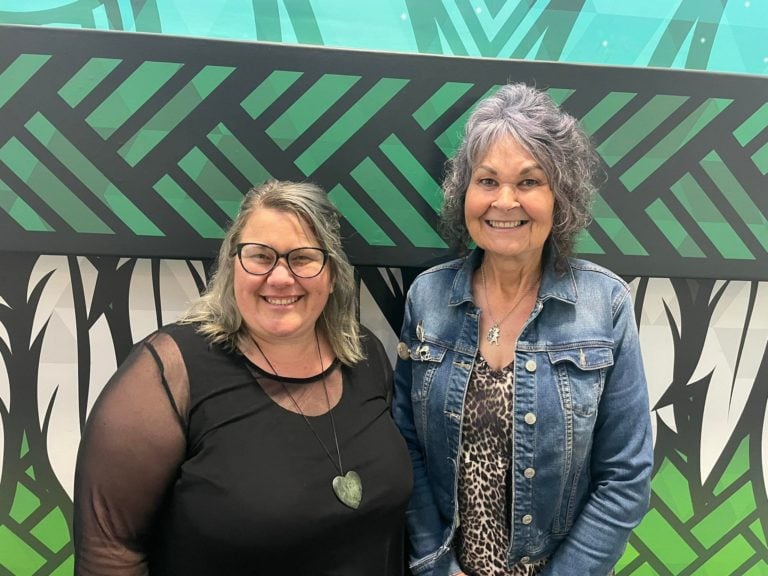What is the Maori Cancer Kaiarahi Service?
The Maori Cancer Kaiarahi Service is a free service in Southland designed to support Maori and their whanau with high suspicion of/or diagnosis of cancer. The service supports individuals and whanau to get the right information, make informed decisions, and eliminate any barriers to options.
To get in touch with us phone (03) 214 5260 or Freephone 0800 925 242, or visit us at 92 Spey Street (Level 2), Invercargill.
Barbara Metzger and Jo Cullen feel privileged to have the opportunity to walk alongside and support whanau affected by cancer. The pair spoke to Nicci Fowler about their role, what it means to them and how they can offer their support.
We are here as social support to do the practical and sometimes messy stuff, so our clients have more time for the good stuff.
We can ensure people get to their appointments, understand what is happening and most importantly, take some of the stress off their shoulders.
This role is all about the people.
Being diagnosed with cancer can be overwhelming for not only the individual, but the whanau as well. We know that some individuals want to protect their family and be seen as strong, resilient and brave. We can help take some of the load by being the whanau member’s support, the person they can talk to and ensure they understand exactly what is happening to their whanau.
We are in a privileged position of having strong community contacts such as Work and Income and National Travel Assistance, and knowing the ins and outs of a lot of different departments. Because of this, we are able to help guide whanau through this new and sometimes confusing process.
NKMP has held this contract for more than 8 years. We are navigators. We can go together to meet the clients face-to-face and to explain our roles; we are not doctors or nurses. We are there as social support. We have great contact/support within hospital oncology and other departments i.e. Cancer Society and Hospice, and we can support and help with tasks that may make life easier.
We can support with travel assistance, getting people organised to go to Dunedin, assist with accommodation, and be their liaison between hospital and other people. We are a second set of ears at appointments - taking notes and putting it into language that may be easier to understand. We can help to make a plan and understand treatment options. Sometimes it’s just catching up for a cuppa.
We can’t name all of the ways we help people, because everyone needs something different.
For some, the realisation they have cancer is one thing, but it’s the overwhelming feeling of having to sort so many things. We had a client recently who had borrowed a caravan because they were told they needed to be in Dunedin for six weeks treatment, and they were worried about finding somewhere to park it. But, no one had told them they could get $100 a night for accommodation close to the hospital.
The role can have some challenging moments. However, we stay in it because we love it. It’s all about the people. It’s rewarding work and we just do the best we can possibly do.
It’s all about the people.

